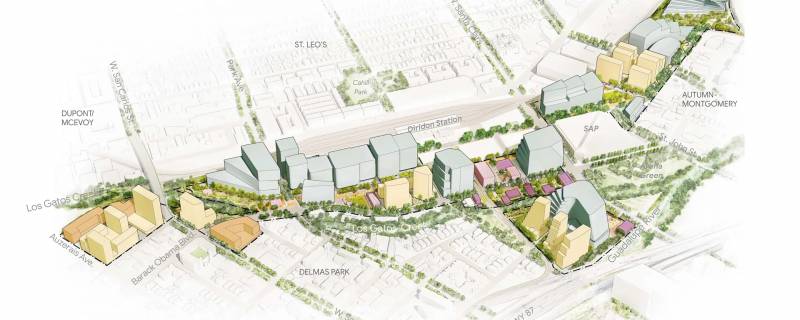After four years of negotiations between Google and San Jose, the tech giant and the Silicon Valley city have announced a development plan for Google’s new transit-oriented campus near downtown. The plan includes $200 million in funding for affordable housing and preventing displacement. The Google community benefits package includes $150 million for various social programs aimed at preserving affordable housing, fighting homelessness and other housing-related goals.
The proposed campus, called Downtown West, will include 15 acres of open space, 4,000 new homes and 600 units allocated for affordable housing.
Google’s benefits package also includes “opportunity grants,” which would provide college scholarships, career exploration for middle and high school students and support for small business and entrepreneurship in the city.
“Google gets it, they’ve heard the community,” Mayor Sam Liccardo said Tuesday. “They’re eager to respond to the needs of the community and we look forward to this partnership.”
Since 2018, when city officials approved the $110 million sale of public land for Google’s expanded campus, local housing advocates have been vocal about their concern over the development’s likely impact on the city’s already low housing affordability.

